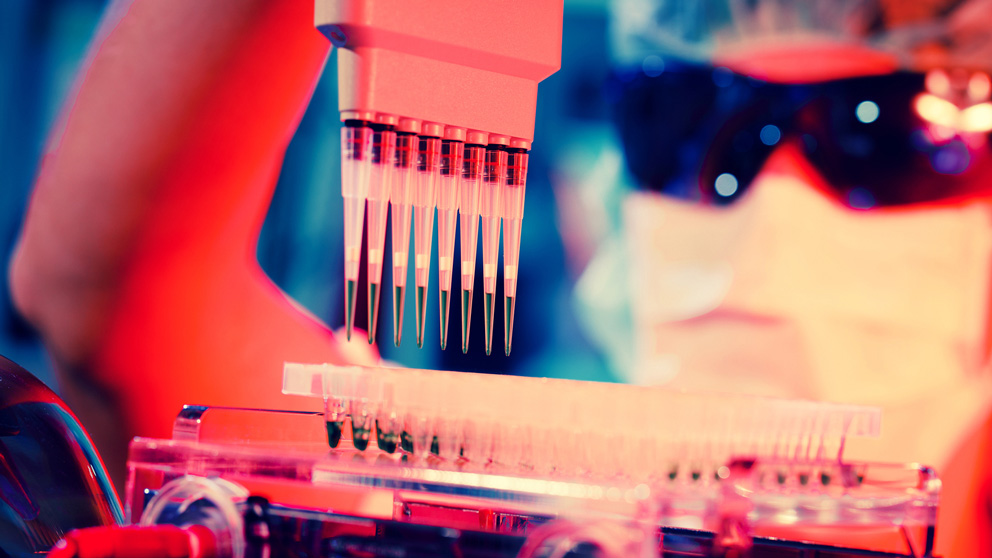
The latest developments in cancer research and their translation to oncology practice offer truly exciting potential for better therapies in the near future. Research areas such as The Jackson LaboratoryThe Jackson Laboratory is an independent, nonprofit organization focusing on mammalian genetics research to advance human health. Our mission is to discover precise genomic solutions for disease and empower the global biomedical community in the shared quest to improve human health.oncoimmunology and genomics , which point the way to more targeted therapies, dominate the medical news. But behind the scenes there is also a lot of attention being given to creating more accurate and powerful ways to model cancer and test therapies. Scientists have learned a great deal studying cancer cells in a dish, but it’s now widely recognized that better experimental platforms are needed to accelerate clinical progress.
For example, recent work has emphasized the importance of the microenvironment in cancer. The dynamics of the microenvironment, which encompass the myriad interactions tumor cells have with integrated and adjacent non-cancerous cells and tissues within a patient’s body, can have a significant influence on tumor growth, spread, therapy efficacy, and much more. These interactions are lost in a Petri dish, but they are an essential part of tumor biology and progression. Critical issues include mechanisms of immune evasion, as tumors co-opt immune cells in the microenvironment to actually suppress an anti-tumor immune response. Understanding such mechanisms is clearly important for the development and refinement of new immunotherapies such as checkpoint inhibitors, which act to remove such brakes on immune activity.
An intriguing way to more accurately model cancer is to implant patient tumors in immunosuppressed mice, producing what are known as patient-derived xenograft (PDX) mice. It’s not an exact match, of course. The immune interactions are missing, and immune pathways in mice differ from those in humans in any event. And the tumors are engrafted subcutaneously, so tissue-specific interactions are missing, including any molecular signaling that may occur within the colon, breast, pancreas, etc. Nonetheless, PDX mice offer an experimental step forward for growing and analyzing a variety of different human cancers and testing targeted therapies, providing obvious advantages compared to working with cancer cell lines. Primary tumors are engrafted immediately after removal from the patient, so they haven’t accumulated the confounding mutations that often arise in cell lines. And the tumors are grown in vivo, within a living organism, in conditions that allow for better recapitulation of their progression in the patient.
JAX has been a leader in developing the PDX platform, from JAX-engineered NSG mouse an innovative cancer research toolLearn how the NSG model is revolutionizing cancer research, allowing the engraftment of patient-derived tumors such as melanoma, leukemia and lung tumors.creating the advanced immunosuppressed mice that can host human tumors (known as “NSG”) to New information standard announced for PDX models to improve cancer researchNew minimal information standard makes patient-derived xenograft (PDX) models easy to find, access, integrate and reuse.establishing standards for PDX data. Moving forward, JAX researchers are working to make PDX mice even more valuable for modeling human cancer, including aspects of their microenvironments. For example, new techniques for The Next 'Big Thing' in Cancer Modeling: Patient-Derived Xenografts in Humanized NSG MiceCo-engrafting mice with human tumors that retain the same characteristics and human immune cells, is a new platform to study the relationship between the human immune system and tumors and develop immuno-oncology-based cancer therapies.engrafting functional human immune cells and recreating human immune signaling in the mice using human genes will produce more accurate proxies for preclinical immunotherapy testing. And JAX is playing a prominent role in the creation of a JAX, Seven Bridges to build centralized cancer research data platformNational Cancer Institute awards $2M grant to fund joint PDX data center to integrate, share and analyze cancer treatment data for research community.PDX data processing and coordination center to make PDX research data more consistent and accessible to the community.